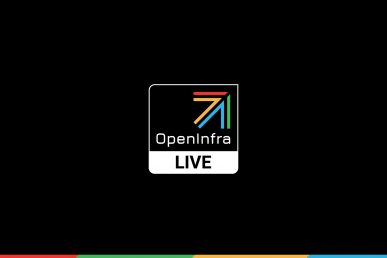Guess what’s "rough around the edges, not sure why it exists but ripe for innovation and productization?" Linux, circa 1996, and OpenStack, today — according to Chris Kemp, former NASA CIO and considered one of the founding fathers of OpenStack. Kemp, speaking to the Register at CeBIT Australia, also remarked that "Openstack is not a product, it is a collection of projects designed to be productised,” he said. The companies making that effort today, he said, are focusing on large-scale opportunities."
In other explosive news: "The combination of Docker and OpenStack is the equivalent of a cloud powerhouse," writes Paul Czarkowski on the Blue Box blog."Maturing rapidly and battle hardened, OpenStack is the perfect platform from which to run legacy and agile apps, whether you’re running them on bare metal, traditional VMs or Linux containers." Czarkowski will be talking about the nuts and bolts of running this powerhouse at the Vancouver Summit.
"The most challenging thing is time and translations being a constantly moving target during the release cycle, which gives everyone a small amount of time to finish our jobs," says Łukasz Jernaś, a software engineer at Allegro Group who also works on OpenStack’s translation efforts. He’ll be elaborating on how the team works it all out at the Vancouver Summit.
OpenStack individual director Rob Hirschfeld offers some good food for thought in the eternal cost vs. complexity debate: "Unfortunately, it’s hard for people building platforms to perceive the complexity experienced by people outside their community. We need to make sure that stability and operability are top line features because complexity adds a very real cost because it comes directly back to cost of operation," he writes on his blog. You can catch Hirschfeld at the Vancouver Summit for all things DefCore, OpenStack’s interoperability push.
And if you were wondering where all those Nebula engineers ended up when the start up evaporated April 1: the 40-person team headed over to Oracle.
Last but not least — if you’re heading to the Vancouver Summit and want to pack some training into your schedule, here you go: OpenStack training and certifications.
https://twitter.com/itarchitectkev/status/596690082821742592
Per @annegentle of @OpenStack – docs get 1,000,000 page views per month! https://t.co/NhHPgBAahv
— Niki Acosta (@nikiacosta) May 7, 2015
Learn about @OpenStack Neutron with @mestery & Mark McClain during their #ONUGSpring15 tutorial May12 #NetOps #DevOps http://t.co/8a1pLFDmO3
— ONUG (@ONUG_) May 5, 2015
https://twitter.com/sdague/status/595335051006586880
https://twitter.com/gottstogo/status/596007427687854080
https://twitter.com/OpenStackMN/status/595738339623489536
.@melsmo congrats on the coreosfest! Sounds like it was a huge success. See you in Vancouver soon!
— Mark Collier 柯理怀 (@sparkycollier) May 6, 2015
Reminisce to the 1st OpenStack Summit. November, 2010: OpenStack Community Roundup http://t.co/oUNfYfg13c pic.twitter.com/igCR2pwOjP
— patricia_dugan (@patricia_dugan) May 2, 2015
Any @openstack fans who wish to do more than have #Kilo dedicated to @cbkyeoh, please donate to lung cancer research http://t.co/qeYEo7VtC9
— Kellyo (@kelisha) May 1, 2015
Some really interesting #NFV and #Openstack on the OpenStack & Beyond podcast https://t.co/ampjFa1jOD
— Sharone Revah Zitzman | #StandwithIsrael 🎗️💙🇮🇱 (@shar1z) May 4, 2015
Interesting and timely! "OSAD is a "batteries included" OpenStack deployment solution" https://t.co/w1HO56a24I
— Mark Collier 柯理怀 (@sparkycollier) May 1, 2015
We feature user conversations throughout the week, so tweet, blog, or email us your thoughts!
Cover Photo via morguefile.com
- Demystifying Confidential Containers with a Live Kata Containers Demo - July 13, 2023
- OpenInfra Summit Vancouver Recap: 50 things You Need to Know - June 16, 2023
- Congratulations to the 2023 Superuser Awards Winner: Bloomberg - June 13, 2023

)










